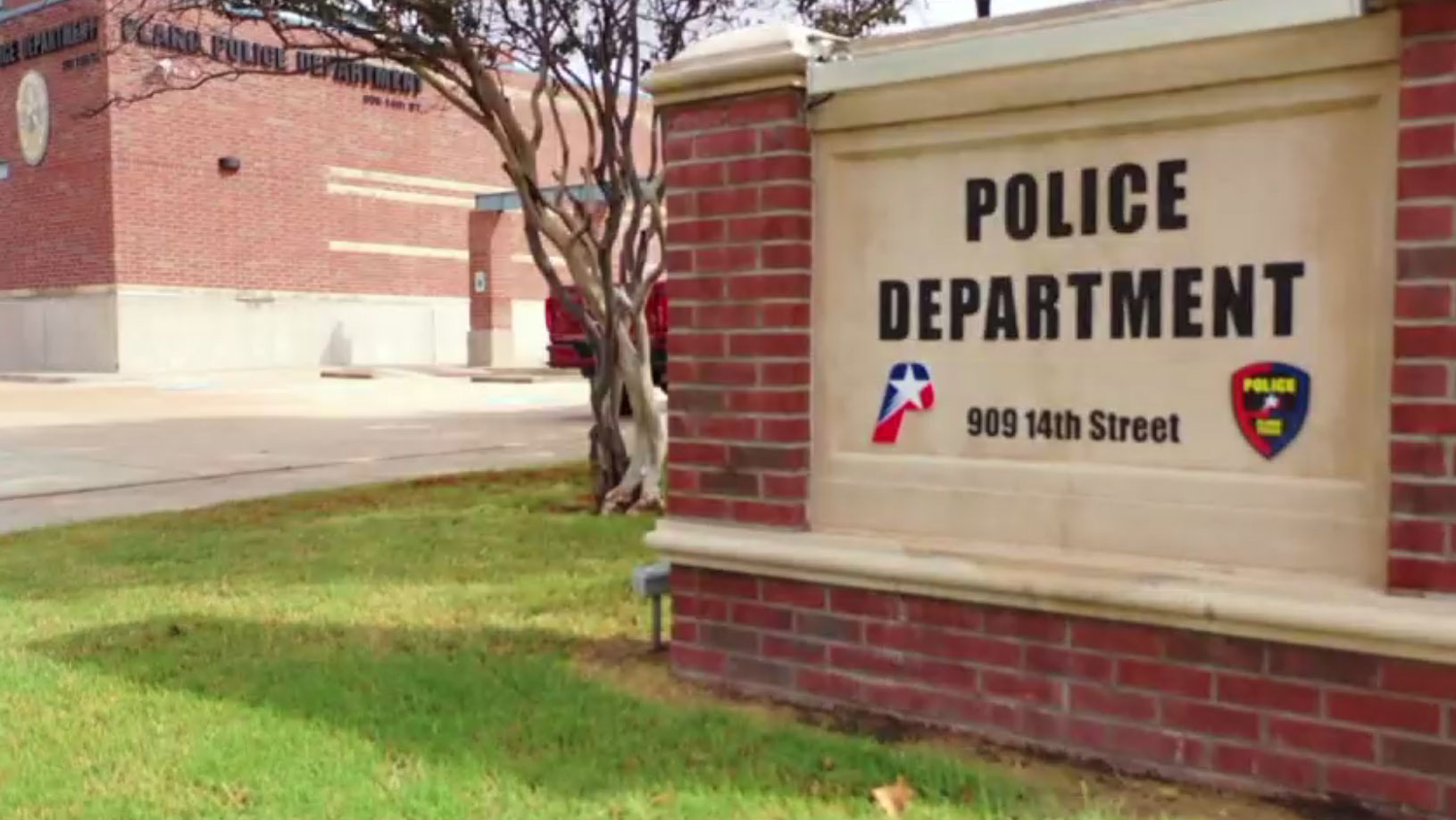Dozens of UPS workers rallied outside a UPS hub in McKinney on Wednesday morning, demanding better treatment from the company amid the dangerous Texas heatwave.
This comes after a delivery driver passed out and crashed into a tree last week, reportedly due to the heat.
The workers are represented by Teamsters Local 767, the union that has helped navigate the tensions that have come to a boil recently throughout multiple incidents this summer.
Get top local stories in DFW delivered to you every morning. >Sign up for NBC DFW's News Headlines newsletter.
The most recent incident involved a UPS driver crashing his truck on Friday when he passed out behind the wheel due to the heat, according to the union.
The union claims he called the company after experiencing heat-related symptoms and was told to bring the truck back to the facility instead of being provided with medical assistance. He was taken to the hospital, treated, and released.
The union said that was the third heat-related incident in recent months at UPS’ McKinney facility.
Local
The latest news from around North Texas.
Friday's crash came as a shock to another McKinney family who said heat stress took the life of one of their family members who also worked for UPS. In August 2023, Neysa Lambeth’s husband, Chris Begley, was driving for UPS out of the McKinney facility when he passed out from the heat. Lambeth said she was out of town, and instead of calling 911 or taking Begley to the hospital, another UPS employee drove Begley to his empty home. He died four days later.
Last week, the NBC affiliate in Central Texas reported a UPS worker died, allegedly of heat illness according to his family.
The union has been in talks with the company to sort through the concerns and worries from workers.
“We have met with UPS over the last 24 hours and have some discussions to try to get on the same page with exactly what's going on,” said Dave Reeves, president of Teamsters Local 767. “But at the end of the day, the Teamsters organization, we're here to support our members and once again to make sure that our member safety is adhered to at the highest level.”
‘WE’RE HUMAN’
The heat has been a serious issue for UPS workers and delivery drivers from different companies for many years. Employees have had to adapt to the dangerous heat in places like Texas but when incidents happen, the demands for better treatment come to a head.
“When it's 105 degrees outside, that internal body temperature rises up. And then in the back of those trucks, they can get up to 130 or 140 degrees. I swear you could make brownies back there. There's no airflow and man it can really catch up to you very quickly,” said Jeff Bowers, a UPS delivery driver for nearly 25 years.
He said many people in the general public are surprised to learn that most UPS trucks seen on the road have no air conditioning.
It's a cost-saving measure for a job that makes many stops and covers countless miles.
"We're human. It is extremely hot and we are working long hours. And when the employees call in and they tell the company that they are experiencing any kind of heat-related injury, that it’s taken seriously. That's what we're asking for,” said Reeves.
The union has fought for improvements over the years. Recently, fans were installed in every truck – it started with one and then upgraded to two as the union pushed back, Bowers said.
“So they obviously had the resources to do it. They just fought it and fought it and fought it and we had to file grievances and do all of these things through the union to just get a fan in the truck,” he said.
Last year, the company agreed on a contract with the union to finally put air conditioning in all new delivery trucks purchased in 2024 and beyond.
But that's the problem workers have now. There's no requirement to replace existing trucks with these new AC units until the older trucks are phased out.
"As far as I know, there's not one truck in this building that has AC in it. With the last contract they approved, all new trucks would get AC. But I've worked here for ten years. I've had my truck for seven years I don't expect it would get replaced in the next ten years before I retire with a full pension,” said Bowers. “So I may never see it and that's the that's the issue. That's the reason we're out here."
Reeves said he does not know the exact location where the AC vehicles have been distributed and the company has not provided information as to how many have been distributed across Texas.
He said the agreement does not include retrofitting older trucks with AC.
“Currently right now in our jurisdiction here in North Texas, we have over 2,000 drivers in our area and not one of the trucks to my knowledge have AC in them currently as we sit today,” Reeves said.
STATEMENT FROM UPS
NBC 5 reached out to UPS for a statement to the claims and demands made by the union.
“The health and safety of our team members is important to us, and we are committed to providing a safe working environment for our employees. Last year, UPS and the Teamsters agreed to additional measures as part of our overall efforts to help keep our employees safe while working in the heat. We are on plan or ahead of schedule on all our contractual commitments. UPS has hundreds of vehicles with AC operating on the roads today and we will continue to purchase and deploy new vehicles with AC as quickly as possible,” UPS said in a statement.
The company added, “The agreement with the Teamsters also included making modifications to our existing package cars to improve airflow, temperature, and comfort for our drivers. We have equipped the vast majority of our vehicles with heat shields and enhanced air intakes to better cool and ventilate the cargo area.”
A UPS spokesperson also sent a summary of additional efforts it is taking to keep employees safe, including:
Investing more than $409 million annually in safety training in the U.S., and continually enhancing heat safety training
Outfitting workers with specialized cooling gear, and adding equipment to vehicles and facilities that help protect people from the heat.
Regularly train and communicate on Recharge, the health and safety program that was developed in partnership with experts in athletic hydration and heat safety.



